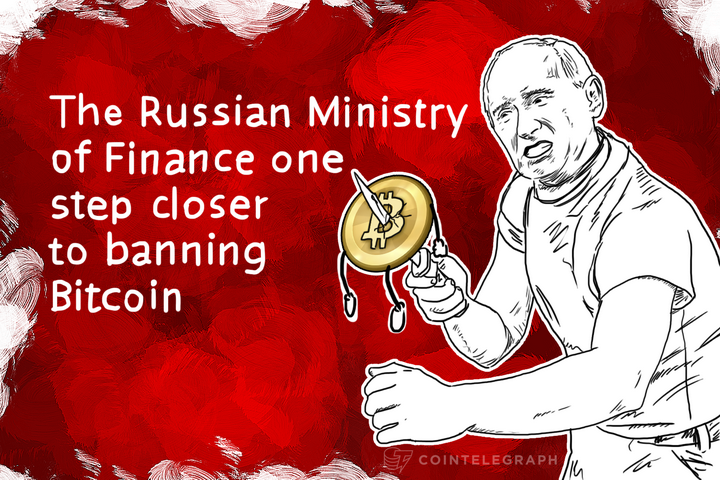Bitcoin, the first and the well-known cryptocurrency, has been a point of contention ever since it drew public attention in late 2013. Since it directly bypasses the established financial systems of sovereign nations, making a new form of virtual currency in a decentralized format accessible to anyone with a computer various countries, approaching it as an illegal commodity, have taken steps to curb its usage, often by citing its use in illegal contexts and thereby taxing it as foreign income or banning the cryptocurrency entirely. Other countries, however, have simply allowed it, justifying by noting Bitcoin's lack of usability as 'money' within their borders—in other words, that it isn't legal mean of payment.
Back in April at the Moscow Bitcoin Conference, the general consensus of Russia’s Bitcoin community on the topic of Russia’s purported ‘ban’ on Bitcoin was that it is in fact a hands-off approach with many questioning the feasibility of regulating the new market. Many of economics' and politics’ most influential people were showing their skepticism towards Bitcoin and its role in Russian market.
Sergey Belyakov, Deputy Minister of Economic Development of the Russian Federation, stated:
“I don’t use it. But I know that our regulatory bodies, as far as I can tell, are reasonably skeptical towards this new system of payment. But I am open to any new ideas related to payment system and I don’t think that the inability to control is a strong argument for shunning this new system.”
When asked about the reason for the so-called ban on cryptocurrencies, which the Central Bank of Russia justified due to their potential involvement in financing illegal activities, Belyakov added:
“If there are particular issues with what kind of [illegal] transactions can be supported with such a payment system then this is a question of management, the effectiveness of control and the adaptation of regulatory bodies to emerging technologies. This has always been the case and you cannot stop the world from moving forward, new systems of payment included.”
Now, the Russian Ministry of Finance wants to ban Bitcoin transactions. It proposes to limit not only the ‘substitutes’ of money, but also transactions with them, including their use as payment for goods and services.
Furthermore, the Ministry of Finance proposes administrative and criminal punishment for the issue of money substitutes and transactions with their use. Also, the institution plans to restrict access to information sources, which produce Bitcoin and carry operations with their use, with the establishment of appropriate administrative sanctions, reports "Interfax".
Up to now, the law is not yet officially published. It is planned that the act can become effective in 2015. The initiators of the amendments claim that cryptocurrency attracts informal or even illegal economical sector. They are concerned that owners' names are hidden, and so-called Bitcoin gained popularity for possibility of buying with it illegal goods - therefore its legalization may stimulate crime.
The additional materials to the law note that virtual money cannot have the status of a legal tender in any jurisdiction.
According to the Ministry of Finance, use of "money substitutes" as a means of payment and savings may “infringe the rights of conscientious people”. Institution claims that holders of "money substitutes" are unable to protect their interests in judicial or administrative order because of its anonymity and virtuality.
First deputy chairman of the Central Bank of Russia Georgy Luntovsky in early July reported that the Bank of Russia is currently reviewing the situation with the development of Bitcoin and other cryptocurrencies. Then he admitted that this issue is still under discussion:
"In my opinion, we cannot reject these tools now. Perhaps the future will be based on them”.
It brings to mind words of Arkady Dvorkovich, the ex-Assistant to the President of the Russian Federation under Dimitry Medvedev, who asserted in April that the topic of Bitcoin and its legal status is indeed a crucial issue, not easy to solve:
“This is a question for the Central Bank. But with relation to surrogates or cryptocurrencies and how they will influence the economic situation as a whole - the monetary policy is, after all, relatively delicate with inflation etc. You must approach these issues carefully."


